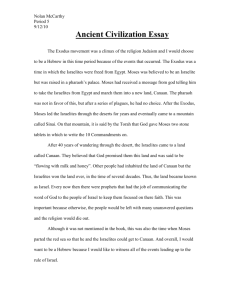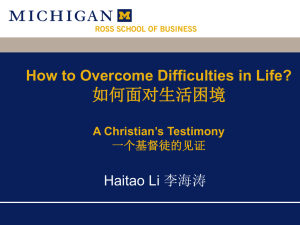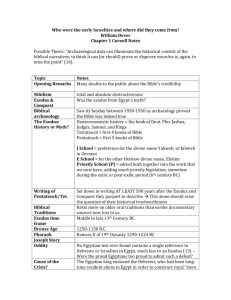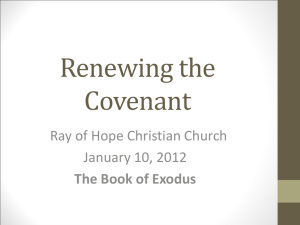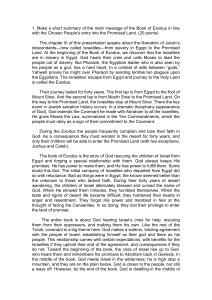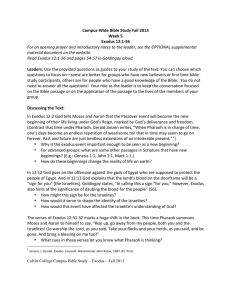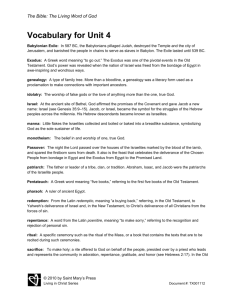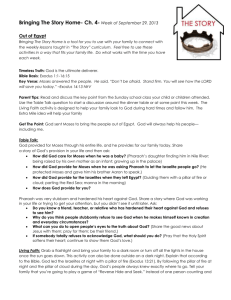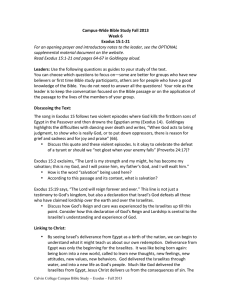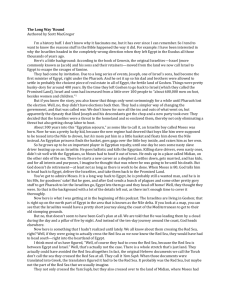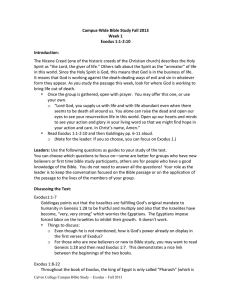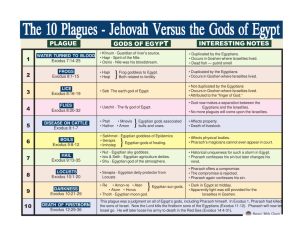Exodus, The Way Out
advertisement
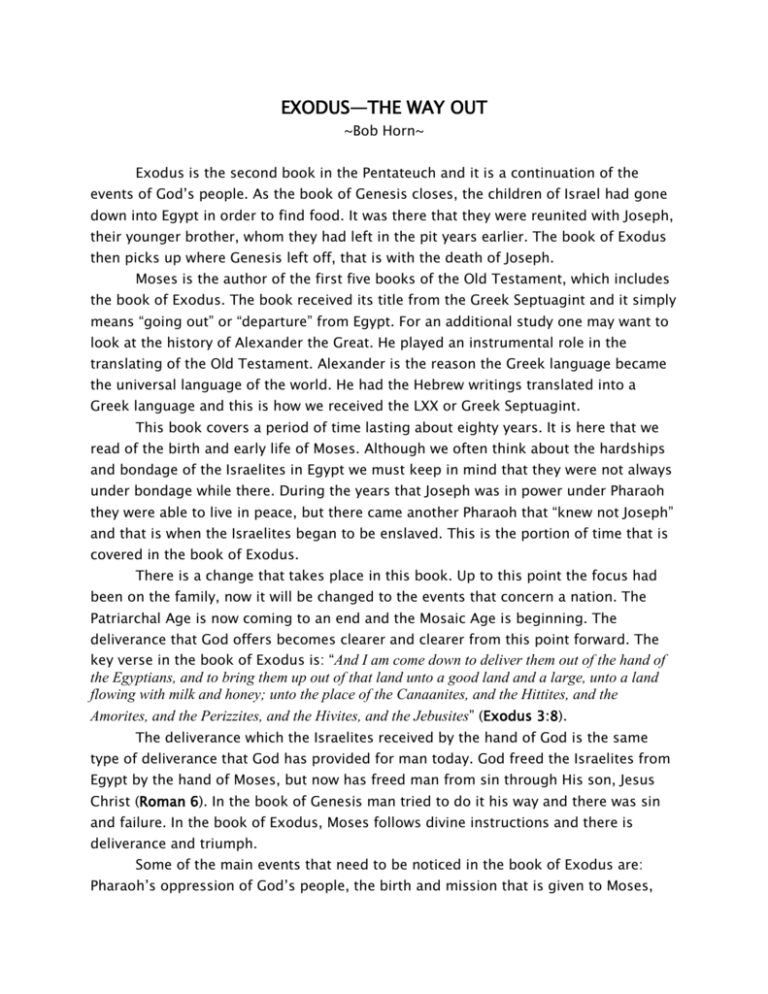
EXODUS—THE WAY OUT ~Bob Horn~ Exodus is the second book in the Pentateuch and it is a continuation of the events of God’s people. As the book of Genesis closes, the children of Israel had gone down into Egypt in order to find food. It was there that they were reunited with Joseph, their younger brother, whom they had left in the pit years earlier. The book of Exodus then picks up where Genesis left off, that is with the death of Joseph. Moses is the author of the first five books of the Old Testament, which includes the book of Exodus. The book received its title from the Greek Septuagint and it simply means “going out” or “departure” from Egypt. For an additional study one may want to look at the history of Alexander the Great. He played an instrumental role in the translating of the Old Testament. Alexander is the reason the Greek language became the universal language of the world. He had the Hebrew writings translated into a Greek language and this is how we received the LXX or Greek Septuagint. This book covers a period of time lasting about eighty years. It is here that we read of the birth and early life of Moses. Although we often think about the hardships and bondage of the Israelites in Egypt we must keep in mind that they were not always under bondage while there. During the years that Joseph was in power under Pharaoh they were able to live in peace, but there came another Pharaoh that “knew not Joseph” and that is when the Israelites began to be enslaved. This is the portion of time that is covered in the book of Exodus. There is a change that takes place in this book. Up to this point the focus had been on the family, now it will be changed to the events that concern a nation. The Patriarchal Age is now coming to an end and the Mosaic Age is beginning. The deliverance that God offers becomes clearer and clearer from this point forward. The key verse in the book of Exodus is: “And I am come down to deliver them out of the hand of the Egyptians, and to bring them up out of that land unto a good land and a large, unto a land flowing with milk and honey; unto the place of the Canaanites, and the Hittites, and the Amorites, and the Perizzites, and the Hivites, and the Jebusites” (Exodus 3:8). The deliverance which the Israelites received by the hand of God is the same type of deliverance that God has provided for man today. God freed the Israelites from Egypt by the hand of Moses, but now has freed man from sin through His son, Jesus Christ (Roman 6). In the book of Genesis man tried to do it his way and there was sin and failure. In the book of Exodus, Moses follows divine instructions and there is deliverance and triumph. Some of the main events that need to be noticed in the book of Exodus are: Pharaoh’s oppression of God’s people, the birth and mission that is given to Moses, the miracles of the ten plagues, the Passover is instituted, and the Israelites finally departing and crossing the Red Sea. One can also learn that man is so easily distracted and discouraged by the things or lack of things in this world. The Israelites would begin to complain and murmur for food even when they had enough to eat. They would turn their attention to making a god (golden calf) instead of worshiping the one true God, the one that delivered them. The tabernacle and the priesthood will be established in this book as well. Exodus teaches us that God is there assuring us that He is with us. It teaches that He will always keep His promises. We also learn that God’s promises are conditional based on the obedience of those who follow Him. It also teaches us that God is always there looking out for his people; He will always provide what is needed. The book of Exodus is a great source of encouragement for those who want to follow God. It helps us to know that God will always make provisions for us, whether those needs are physical or spiritual. What we must learn is that He makes the way, but we must be willing to meet Him and do our part.
